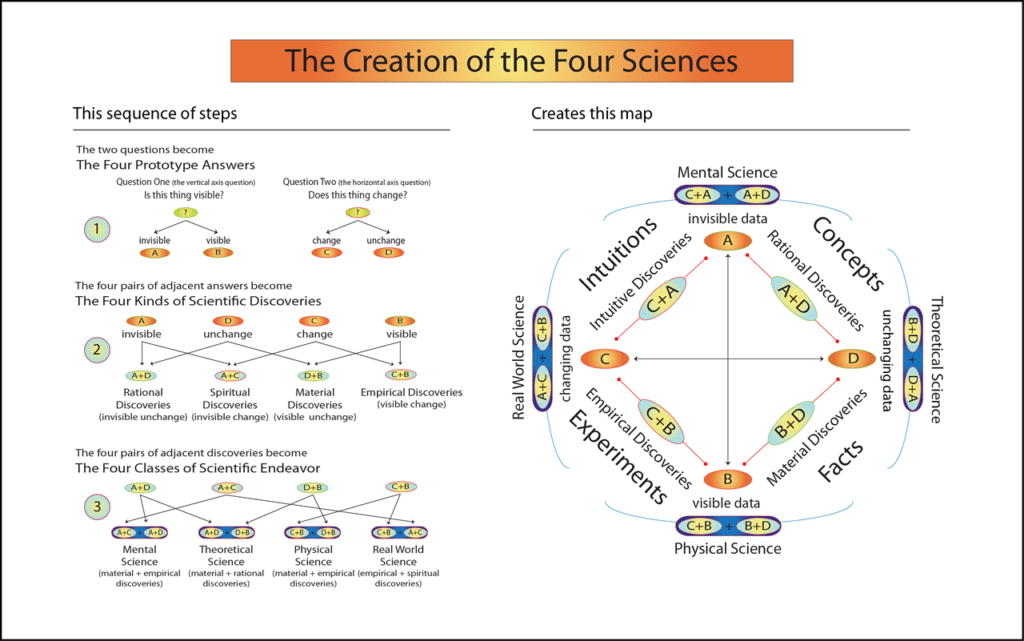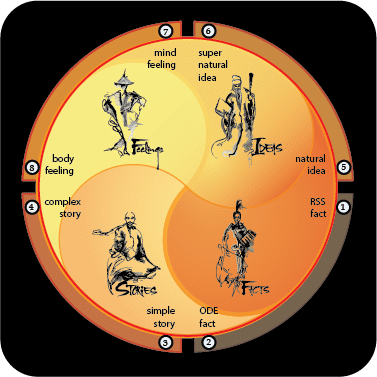Can We Ever Be Certain of an Idea?
In the sixth century BCE, Parmenides claimed, nothing true ever changes. In the same time period, Heraclitus claimed, you can’t step into the same river twice. Since then, an incredible amount of brilliant, but foolish, people have argued this point. All the while, the answer is right in front of us. Both are true and useful, but only in their own realms.
One realm is truth (certainty) in theory. The other, truth (certainty) in the real (physical) world.
Parmenides is referring to truth in theory (true ideas). And in a sense, all ideas, regardless of what they refer to, are theoretical references. Take the idea that “lamps light rooms. ”This idea will never change, let alone be untrue. Why? Because even if there were to no longer be any rooms or lamps, in theory, this statement itself (this idea) will always be true.
Heraclitus, however, is referring to truth in the real world. In the real world, nothing, not even a single atom, ever stands still. Ever. Indeed, it is this quality of constant change which defines truths as being real world truths. And anyone who understands this knows it is the “emperor’s new clothes” flaw in the current scientific method. The current scientific method takes Parmenides’ side and sees unchange as the gold standard for proof something is true. Whereas in the real world, nothing ever stands still. All things constantly change.
Brain breaking, isn’t it? Know that if you feel lost after reading these few brief paragraphs, you’re normal. Imagine spending a lifetime trying to sort all this out. Fortunately, there is a simple way to answer the OP’s question. The answer? Yes. We can be certain of some ideas. Indeed, we can even be certain of an entire class of ideas in both realms.
The class of ideas?
Fractals.
When we see a fractal, we can be certain we know what it is.
Now to see why I say this, consider how children learn what a candle flame is. Or a Cumulus cloud. Or a sunset. Or a rainbow.
Five-year-olds learn these ideas, for life, in a single wonder-filled moment. Once learned they will be knowable truths to them for the rest of their lives.
Realize, this is true despite that no two candle flames will ever be the same, let alone remain the same, not even for a single moment. How is this possible? It’s simply the nature of all things fractal. which is why, were we to limit our science to discovering fractal patterns, we could be certain of far more than we currently are and our knowledge would increase exponentially.
Realize, when I say we can know these patterns for life, I’m saying knowable to the point that we can be certain. We can discern silk roses from real ones, with certainty, no matter how well they are made. How? Because while real roses, and silk, are fractal patterns, the cuts in the silk rose parts are not.
Know that when I refer to fractal patterns, I mean “recognizable patterns which always repeat differently.” As opposed to science’s chosen preference, linear patterns, which are “recognizable patterns which always repeat identically.”
To answer the question then, yes, we can certain of certain ideas. And for anyone interested, here’s a more comprehensive diagram of the relationships between these parts, including the math (logical geometry) I used to arrive at and prove these relationships.

